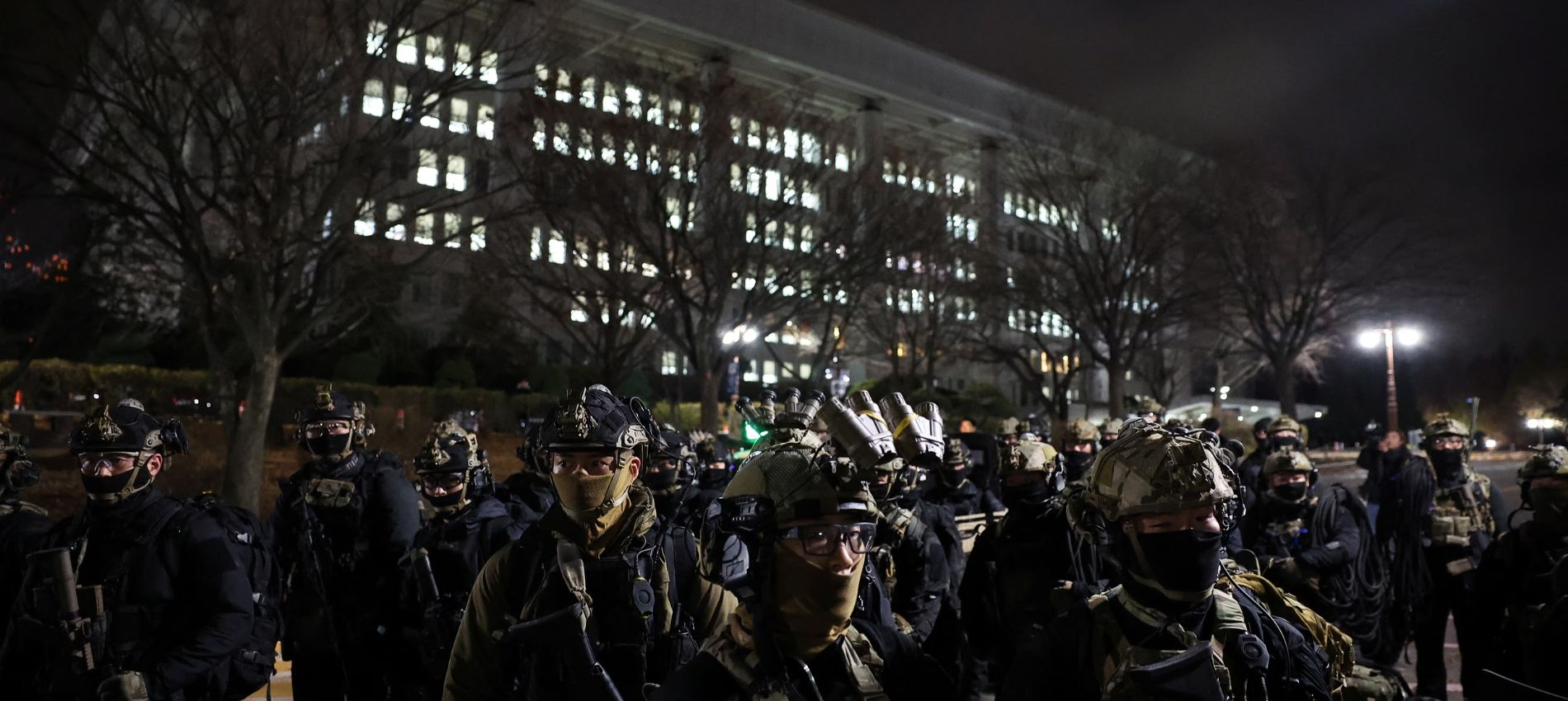
Korean Martial Law and Its Impact on the Entertainment Industry - dmusemagz.com
December 4, 2024
In a shocking turn of events, Korean Martial Law was declared in late November 2024 by South Korean President Yoon Suk Yeol. This declaration came in response to escalating political unrest and threats from North Korea, sending shockwaves through various sectors, especially the vibrant Korean entertainment industry. Let’s break down what happened, why it matters, and how it affected everything from K-pop concerts to drama productions.
Key Details of the Martial Law Declaration
Date Declared: December 3, 2024
Reason: The primary justification for the martial law was to protect the Republic of Korea from perceived threats posed by North Korea and to eliminate any pro-North Korean sentiment within the country. The government aimed to maintain stability during a tumultuous time.
Duration: Thankfully, the martial law was short-lived. After just a few hours and following swift parliamentary intervention, it was lifted, but the impact on society and the entertainment sector was already profound.
The Impact on the Entertainment Industry
Event Cancellations
One of the most immediate consequences of the Korean Martial Law was the widespread cancellation of events across the entertainment landscape. Major agencies like HYBE, JYP, and SM Entertainment quickly advised their artists to cancel scheduled appearances. This included highly anticipated K-pop concerts, fan meet-and-greets, and even drama productions. Fans were left disappointed, and the buzz surrounding these events turned to uncertainty almost overnight.
Public Gatherings Restricted
With martial law in effect, public assemblies and gatherings faced strict restrictions. This meant that not only were concerts and fan meetings canceled, but year-end festivals and other public events were also affected. The festive season, usually filled with joy and celebration, suddenly turned into a time of confusion and disruption. Fans who had been looking forward to these events were understandably upset, and the atmosphere shifted from excitement to concern.
Media and Publications Under Censorship
The entertainment industry wasn’t the only sector that felt the weight of martial law; media and publications faced significant censorship and restrictions. This blockade caused further disruptions in entertainment activities, as news outlets struggled to report freely. The vibrant conversations that typically surround upcoming shows, music releases, and events were dampened, leaving fans in the dark about their favorite stars.
Industry Response: High Alert Mode
Facing an unprecedented crisis, entertainment companies went into “high alert.” They issued emergency notices and began working on contingency plans to navigate this chaotic situation. The industry, known for its resilience and adaptability, suddenly found itself in uncharted waters. With no recent precedent for dealing with such a crisis, everyone from artists to managers had to think quickly.
Reactions and Aftermath
Public Unrest
The declaration of Korean Martial Law didn’t just disrupt the entertainment industry; it also sparked widespread public unrest. Protests and revolts erupted across the country, with citizens expressing their discontent and demanding the protection of their democratic rights. The atmosphere was charged, and the streets filled with voices calling for change.
Parliamentary Response
In response to the growing unrest and public outcry, the National Assembly acted swiftly. They voted to nullify the martial law declaration, emphasizing the importance of protecting democracy and upholding constitutional order. This quick action not only restored a sense of normalcy but also showed the resilience of South Korea’s democratic institutions.
Resumption of Activities
Once the martial law was lifted, the entertainment industry wasted no time in getting back on track. Major broadcasters like KBS and SBS announced that their year-end events would proceed as scheduled. Artists who had been sidelined could finally return to the stage, and the anticipation for upcoming shows reignited among fans.
Conclusion: A Profound Impact
The declaration of Korean Martial Law had a profound impact on the Korean entertainment industry, causing significant disruptions and uncertainty. From canceled events to media censorship, the effects were felt across the board. However, the swift parliamentary response allowed the industry to resume its activities and continue with planned events, highlighting the resilience of both the entertainment sector and the South Korean public.
As we move forward, it’s essential to recognize how events like these can shape not just the entertainment landscape but also the cultural fabric of a nation. The quick recovery of the industry after such a tumultuous period is a testament to the strength and dedication of those involved.
In the end, the Korean entertainment industry continues to thrive, reminding us all of the joy it brings to fans worldwide. As we reflect on this event, let’s celebrate the resilience of artists and audiences alike, ready to embrace the future with hope and enthusiasm.
***
Follow D-Muse to stay current with fashion trends, lifestyle tips, and exciting events. DM us now to get all the information you need!
